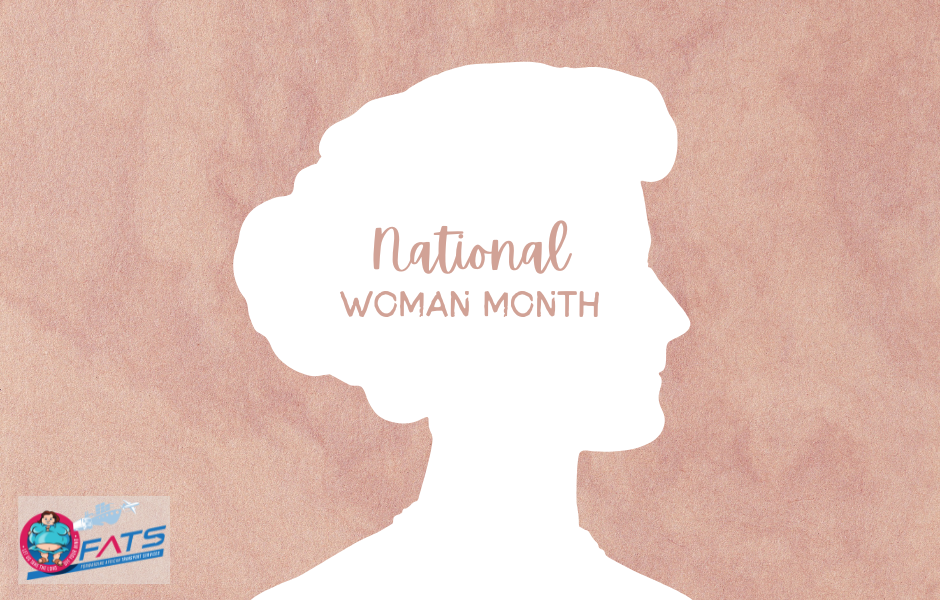The logistics industry, once dominated by men, is witnessing a remarkable shift as women break barriers and drive positive change. This month, we celebrate the extraordinary women who are making their mark in this traditionally male-dominated field. However, the path to gender equality in logistics is not without its challenges. In this post, we delve into the barriers women face, the emerging gender-neutral trends in the industry, the role of technology and automation in fostering gender neutrality, and the unique challenges that lie ahead for women in logistics.
According to Röhlig-Grindrod in “Status of Women in Logistics” the logistics sector is still male-dominant even though there has been a rise of women in the business world. An estimated total of 125 million people work in the logistics industry, but women only make up 1 to 2 percent of the workforce.
Embracing diversity and inclusion the logistics industry is experiencing a transformative shift towards embracing gender neutrality. Organizations are realizing the value of diversity and inclusion in driving innovation and growth. Gender-neutral recruitment practices, leadership development programs, and mentorship initiatives are being implemented to provide equal opportunities for women. By fostering inclusive workplaces, the industry is breaking down gender barriers and unlocking the potential of all its professionals.
DHL has taken significant steps to embrace gender neutrality and promote diversity and inclusion in its workforce. Recognising the value of diverse perspectives in driving innovation and growth, DHL implemented various initiatives. They revised their recruitment practices to eliminate gender biases and focused on assessing candidates based solely on qualifications and skills. Additionally, DHL established leadership development programs tailored to address the unique challenges women face in the logistics industry, providing training and mentorship opportunities. Mentorship initiatives were also introduced, where experienced professionals served as mentors to women employees. As a result, DHL witnessed an increase in the representation of women in leadership positions, creating an inclusive work environment where individuals of all genders felt empowered and valued.
Catalysts for gender neutrality advancements in technology and automation are playing a pivotal role in creating a gender-neutral landscape in logistics. The automation of manual tasks has reduced physical demands, traditionally seen as a barrier for women. Moreover, digital platforms and data analytics have enabled more objective decision-making processes, eliminating biases and promoting fair treatment. As technology continues to evolve, it will further level the playing field and empower women in the industry.
Moving beyond barriers while progress has been made, the journey toward gender equality in logistics is far from complete. As the industry evolves, new challenges emerge. Issues such as work-life balance, gender pay gaps, and career advancement opportunities require continued attention. It is crucial for organisations and industry leaders to address these challenges head-on, ensuring that women have equal access to resources, support networks, and professional development opportunities.
FATS – Forwarding African Transport Services, proudly boasts a predominantly female workforce, with women constituting a remarkable 65% of our employees. What makes FATS even more remarkable is its origin story – founded in June 1992 by the current CEO, Caron Harris, and her sister Elaine. Initially specialising in African transport and logistics solutions, FATS has since expanded into an international organisation, serving clients, and partnering with agents worldwide. With an impressive track record of 31 years in operation, FATS has established itself as a paragon of credibility and resilience, having navigated and triumphed over numerous challenges, including the unprecedented impact of the Covid-19 pandemic.
In embracing inclusivity, FATS has demonstrated its ability to adapt and thrive in the face of adversity. It is undeniable that the significant contributions of women have played a pivotal role in shaping FATS into the successful enterprise it is today. FATS serves as a shining example, showcasing the prominence and capability of women within the traditionally male-dominated logistics sector. By championing diversity and providing equal opportunities, FATS has broken down barriers and paved the way for female professionals to excel and lead in an industry that has historically been dominated by men.
With a workforce primarily composed of women, FATS has not only challenged gender norms but also shattered stereotypes within the logistics sector. The company’s success stands as a testament to the immense talent, dedication, and skills that women bring to the table. FATS has demonstrated that a diverse and inclusive workforce fosters innovation, resilience, and exceptional performance, making it a model for other companies in the logistics industry to follow.
Empowering women in logistics is a collective effort that demands a commitment to breaking down barriers, embracing gender neutrality, leveraging technology, and addressing future challenges. By promoting diversity, inclusion, and equal opportunities, we can create a thriving and inclusive industry where women are not only encouraged but empowered to excel. Let us continue championing gender equality in logistics and strive for a future where every woman can thrive and leave a lasting impact on the industry.

